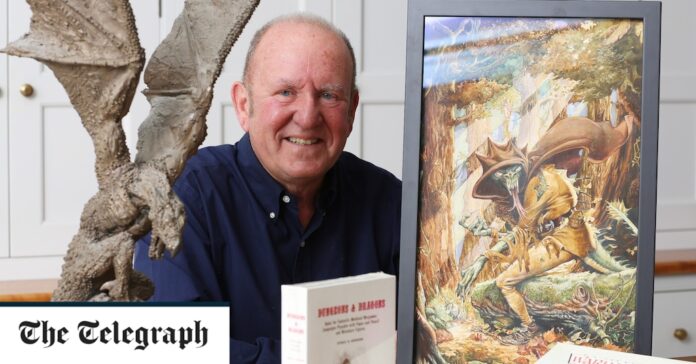The co-creator of Tomb Raider and Warhammer has spent the best part of 50 years telling the world that games are the future – here’s why
Sir Ian Livingstone begins with a question. “Are you a gamer?” he asks. I am, I reply.
I am confident this is the desired answer, as well as the truthful one. We are in the kitchen of his large house in Barnes, south-west London, where he is posing for a photograph with a large model statue of a dragon and the original copies of Warhammer and Dungeons & Dragons, the games he gave to Britain. On the way in, I snuck a peek at his study, where he tells me he has more than 1,500 board games, along with video games, copies of the more than 20 million books he has sold, and two life-size models of Lara Croft, the heroine of the Tomb Raider games, which Livingstone also helped give to the world.
“Oh good,” he says. “It makes things much easier if you’re into games.”
Livingstone, who was knighted in January’s New Year’s Honours, and received his award today, Tuesday November 8, from the Princess Royal, has spent the best part of 50 years telling the world that games are the future, being told that they are not, and then being proven triumphantly correct. At 72, he has the patient but wary manner of a man who has been burnt by the press before. His games have been accused of destroying children’s attention spans, or harming literacy, or of encouraging violence, or outright moral degeneracy. These criticisms have never withstood scrutiny. His games, meanwhile, have beaten off all comers.


